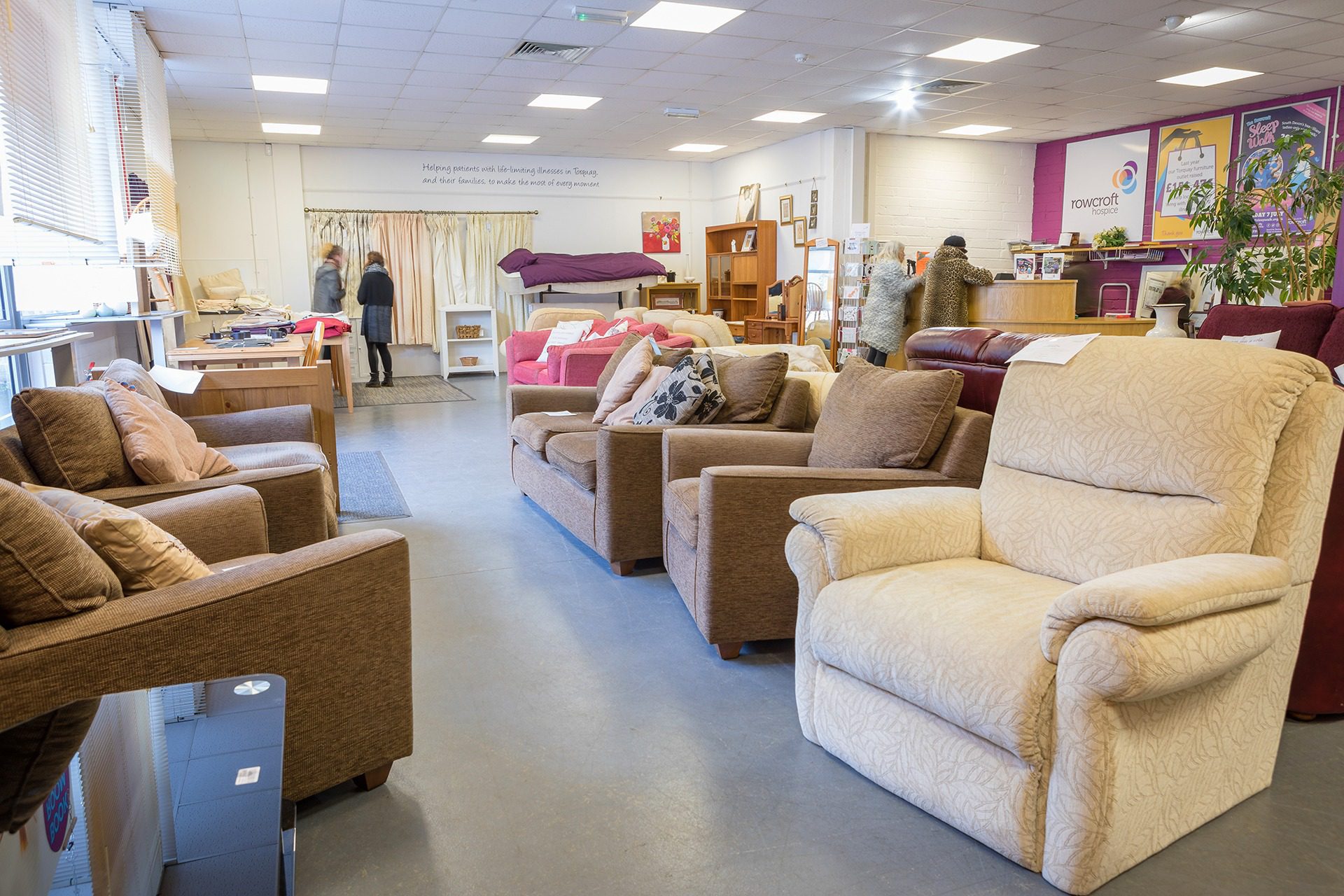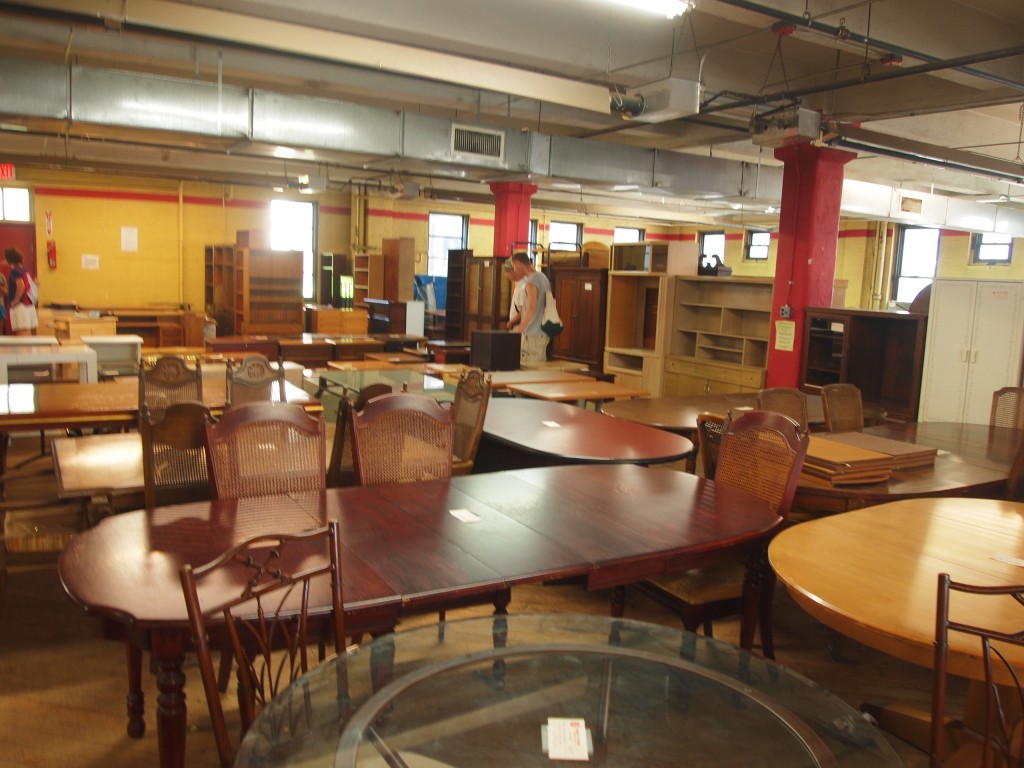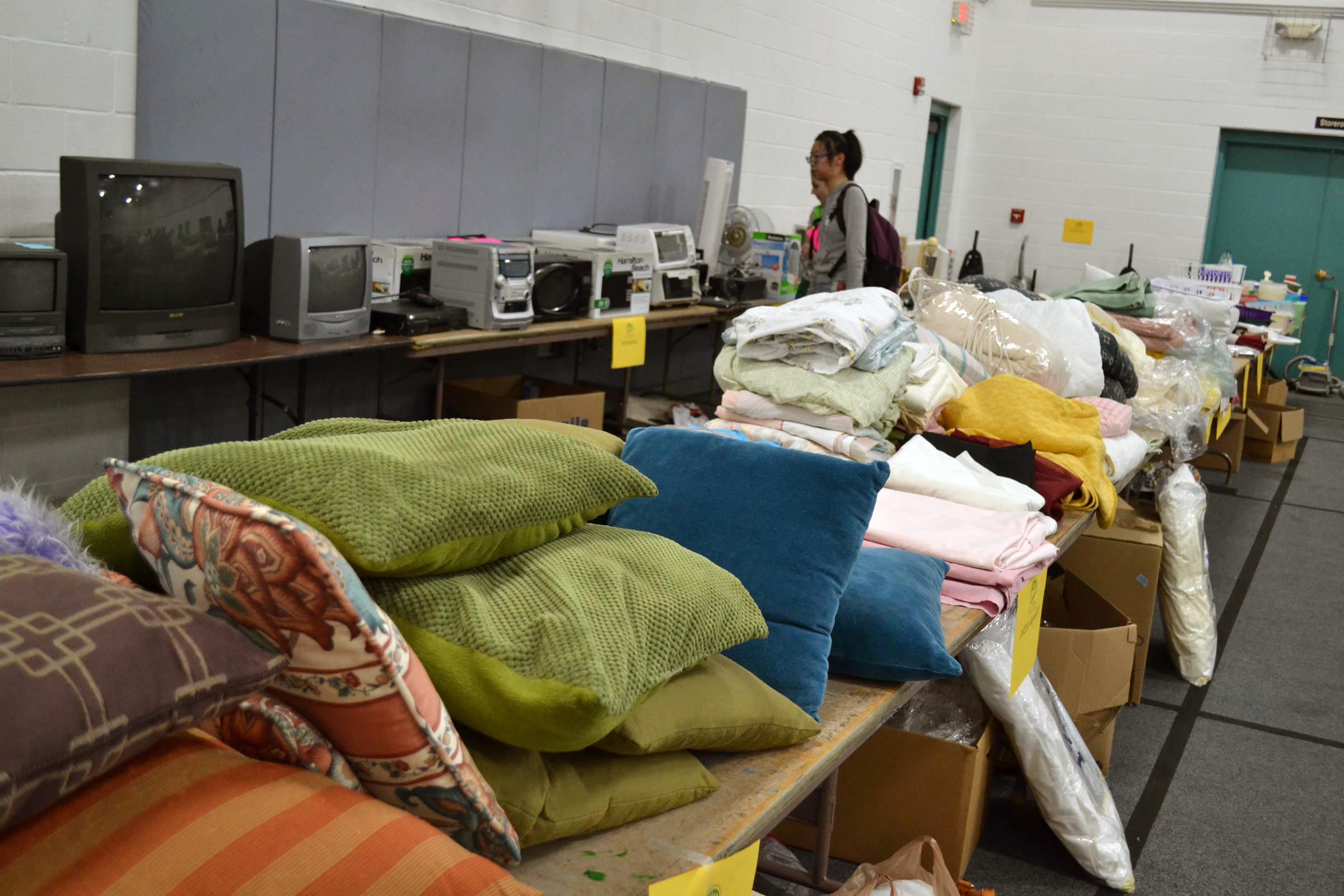A Second Life for Furniture: Exploring the Impact of Donation to Charity Shops
Related Articles: A Second Life for Furniture: Exploring the Impact of Donation to Charity Shops
Introduction
With enthusiasm, let’s navigate through the intriguing topic related to A Second Life for Furniture: Exploring the Impact of Donation to Charity Shops. Let’s weave interesting information and offer fresh perspectives to the readers.
Table of Content
A Second Life for Furniture: Exploring the Impact of Donation to Charity Shops

The act of donating furniture to charity shops is a simple gesture with far-reaching consequences. It’s a win-win scenario that benefits both the donor and the community, fostering sustainability, affordability, and social good. By understanding the intricacies of this process, individuals can make informed choices about their unwanted furniture, contributing to a more circular economy and a more equitable society.
The Value of Donation: A Multifaceted Impact
Donating furniture to charity shops transcends mere disposal; it acts as a catalyst for positive change on several fronts:
1. Environmental Sustainability:
- Reduced Waste: Furniture donation diverts unwanted items from landfills, lessening the environmental burden of waste disposal. This promotes a circular economy, where resources are reused and repurposed instead of being discarded.
- Resource Conservation: By giving furniture a second life, donation conserves resources that would otherwise be used to manufacture new items. This reduces the demand for raw materials and energy, mitigating environmental impacts associated with production.
- Sustainable Consumption: Donation encourages responsible consumption patterns, promoting the use of pre-owned furniture as a viable alternative to purchasing new items. This shift in mindset contributes to a more sustainable and environmentally conscious lifestyle.
2. Social Impact:
- Affordable Furnishings: Charity shops provide access to affordable furniture for individuals and families who may struggle to furnish their homes. This is particularly beneficial for low-income households, students, and those starting new lives.
- Community Support: The proceeds from furniture sales often support the work of charitable organizations, funding vital services such as food banks, homeless shelters, and educational programs.
- Social Inclusion: Donating furniture allows individuals to contribute to their communities, fostering a sense of social responsibility and inclusivity.
3. Economic Benefits:
- Job Creation: Charity shops often employ staff, providing valuable work opportunities and contributing to local economies.
- Revenue Generation: Furniture sales generate revenue for the organizations, enabling them to expand their services and reach a wider audience.
- Stimulating Local Economies: Donating furniture to local charity shops supports small businesses and contributes to the vibrancy of local communities.
Understanding the Donation Process: A Guide for Contributors
Before donating furniture, it’s essential to understand the processes involved:
1. Assessing Suitability:
- Condition: Ensure the furniture is in good condition, free from major damage, stains, or infestations.
- Functionality: Check that all components are present and in working order.
- Safety: Ensure the furniture is safe for use and does not pose any hazards.
2. Contacting the Charity Shop:
- Availability: Contact the charity shop beforehand to confirm they accept furniture donations and inquire about their specific guidelines.
- Collection Arrangements: Some shops offer collection services, while others require the donor to deliver the items.
- Donation Confirmation: Obtain confirmation of the donation and any associated tax receipts, if applicable.
3. Preparing Furniture for Donation:
- Cleaning: Thoroughly clean the furniture to remove dust, dirt, and any stains.
- Disassembly: If necessary, disassemble the furniture for easier transportation.
- Packaging: Wrap fragile items or use protective covers to prevent damage during transport.
4. Donation Drop-off:
- Designated Drop-off Area: Follow the charity shop’s instructions regarding the designated drop-off area.
- Time Frame: Be mindful of the shop’s operating hours and drop-off deadlines.
- Communication: Inform the staff upon arrival and provide any relevant details about the donation.
Frequently Asked Questions (FAQs) about Furniture Donations to Charity Shops:
1. What types of furniture are accepted by charity shops?
Charity shops typically accept a wide range of furniture, including:
- Bedroom Furniture: Beds, wardrobes, dressers, nightstands, mirrors
- Living Room Furniture: Sofas, armchairs, coffee tables, TV stands, bookcases
- Dining Room Furniture: Tables, chairs, sideboards
- Office Furniture: Desks, chairs, filing cabinets
- Kitchen Furniture: Tables, chairs, cabinets
However, specific items may not be accepted depending on the shop’s policies. It’s always best to contact the charity shop directly to confirm their acceptance criteria.
2. What are the benefits of donating furniture to charity shops?
The benefits of donating furniture to charity shops are multifold:
- Environmental Sustainability: Reduces waste and promotes a circular economy.
- Social Impact: Provides affordable furnishings to those in need and supports charitable causes.
- Economic Benefits: Creates jobs and stimulates local economies.
3. Can I claim tax relief for furniture donations?
Tax relief for furniture donations may be available depending on the country and specific regulations. It’s advisable to consult with a tax advisor or the relevant tax authority for accurate information.
4. What happens to furniture donated to charity shops?
Donated furniture undergoes a rigorous process:
- Inspection and Assessment: Charity shops assess the condition and suitability of donated items.
- Cleaning and Repair: Furniture may be cleaned, repaired, or refurbished to ensure its quality and safety.
- Pricing and Display: Items are priced competitively and displayed in the shop for sale.
- Sales and Proceeds: Proceeds from furniture sales contribute to the organization’s mission and support their charitable work.
5. What if my furniture is not suitable for donation?
If your furniture is not in good condition or meets the charity shop’s criteria, consider alternative options:
- Recycling: Some furniture components can be recycled. Check with your local waste management authority for recycling options.
- Upcycling: Transform the furniture into something new and useful through creative upcycling techniques.
- Freecycling: Offer the furniture for free through online platforms or local community groups.
Tips for Donating Furniture to Charity Shops:
- Contact the Charity Shop: Inquire about their acceptance criteria and donation process.
- Prepare the Furniture: Clean, repair, and disassemble if necessary.
- Transport the Furniture: Arrange for delivery or collection as per the shop’s guidelines.
- Donate Responsibly: Ensure the furniture is in good condition and meets safety standards.
- Consider Other Options: Explore alternative options if the furniture is not suitable for donation.
Conclusion: A Sustainable and Socially Responsible Choice
Donating furniture to charity shops is a simple yet impactful act that contributes to a more sustainable, equitable, and socially responsible world. By understanding the benefits, processes, and considerations involved, individuals can make informed choices, giving unwanted furniture a second life and supporting the vital work of charitable organizations. As we move towards a more circular economy, embracing donation as a sustainable practice becomes increasingly important, fostering a sense of community, environmental consciousness, and social good.








Closure
Thus, we hope this article has provided valuable insights into A Second Life for Furniture: Exploring the Impact of Donation to Charity Shops. We hope you find this article informative and beneficial. See you in our next article!